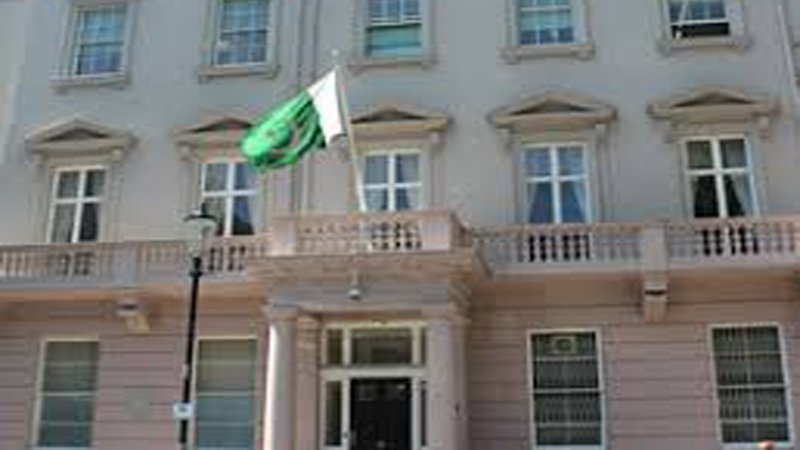
In the context of this debate the past few days have been quite eventful and enlightening. My investigative op-ed for Daily Times — published on 7th May 2018 — received feedback from dozens of diplomats of the Pakistan Foreign Service, who are deeply concerned about the systematic degradation of their service by the outgoing government.
In the view of former Pakistani High Commissioner to New Delhi Abdul Basit, the primary reasons for the decline of this key institution, over the last few years, were cronyism, disregard of seniority and overlooking of the merit, particularly while selecting envoys for key diplomatic assignments abroad and promoting senior officers. He underlined that when senior BS-21 and BS-22 grade officers, possessing the required experience and profile, were available in the Foreign Office and diplomatic missions abroad, there was no reason to appoint junior BS-20 officers, or outsiders with scant diplomatic experience, to key ambassadorial positions.
Ambassador Basit specifically pointed out that hastily recalling Syed Ibne Abbas, one of the most senior diplomats in the Foreign Office, from London to accommodate someone below par would be unfair and demoralising, given the fact that he is to retire by the end of this year. Moreover, he also underlined the current ineffective diplomacy and proposed the appointment of a special envoy for highlighting the issue of Jammu & Kashmir. Keeping in mind that the issue isn’t given much importance these days with a rudderless ‘press release diplomacy’ and sending political safarshis as special envoys in the recent past proved nothing but detrimental since most of them were tourists posing as diplomats.
Meanwhile, more eye-opening details have emerged as to how the outgoing government had been working to render the Pakistan Foreign Office ‘a handmaiden of the Sharif family’ as had been allegedly done to some other institutions.
Not happy with the resistance offered by the Foreign Office establishment to the appointment of unworthy ambassadors, it had been decided last year to install handpicked PAS officers as heads of administration and personnel at the Foreign Office. In fact, an approval had been accorded by Prime Minister Shahid Khaqan Abbasi to the said proposal. It was only the extreme opposition by Foreign Secretary Tehmina Janjua, who was able to convince the then Foreign Minister Khawaja Asif not to take this outrageous step, that the decision was not implemented.
London is too important for the Sharifs for it to be entrusted to someone whose loyalty is not time tested
The dubious circumstances of the nomination of Sahebzada Ahmed Khan as High Commissioner to the United Kingdom have also been elaborated upon. Reportedly, the decision was made during Prime Minister Abbasi’s last visit to London when Ahmed Khan accompanied him and there was great deal of interaction between him and the junior Sharifs.
While Ahmed Khan is perceived to be a staunch loyalist of the House of Sharif since the 1990s, when he actually went on deputation to be Personal Staff Officer (PSO) to Qatar famed Saif Ur Rehman’s brother Mujeeb Ur Rehman, he is too junior and inexperienced to be considered for this key appointment. But mired in the Avenfield Apartments case, the Sharif family desperately wanted a loyal high commissioner in London in the difficult times ahead when they may likely be out of power. It was considered essential because all communication and documentation relating to the NAB reference being exchanged between the Government of Pakistan and British governmental agencies, as well as legal fora, has to be routed through the Pakistan High Commission in London.
Ahmed Khan, reportedly met members of the Sharif family in London and following some ‘mutual assurances’,his outrageous nomination was made for a grade 22 position, over the head of the Foreign Secretary, when the fact remains that he’s still in grade 20.
Naturally, the violation of merit and the fact that the last time Ahmed Khan handled a diplomatic post with a large Pakistani diaspora (as Consul General to Toronto), he had to be moved prematurely, because of the controversies generated, was conveniently ignored. It also did not matter much that based on the previous decisions of the PML-N government, Hungary, Greece, Singapore, Austria have grade 22 ambassadors (and soon Portugal will), while key missions such as Turkey and the Netherlands have grade 20 ambassadors (and soon the UK may also).
London is too important for the Sharifs to be entrusted to someone whose loyalty is not time tested. While some quarters in the media have reported that it was on Ahmed Khan’s watch that his department provided fudged figures regarding former Prime Minister Nawaz Sharif’s foreign visits to the Senate of Pakistan, it only ‘strengthened his credentials in the family’s estimation’.
Meanwhile, the long awaited agreement for Ali Jahangir Siddiqui’s nomination has been finally conveyed by the US State Department. In case the British Foreign Office also decides to approve Ahmed Khan’s nomination, and they both end up in Washington and London respectively (despite the huge controversy), it is anybody’s guess as to how long they will last in case PML-N loses the upcoming elections. Who would be responsible for the loss of tens of millions of rupees to the national exchequer and the continued loss of credibility and reputation of the Pakistani diplomacy in that eventuality?
It cannot be overstated that the future course and conduct of Pakistan’s diplomacy should be the utmost priority for the key stakeholders. The ongoing decline of our diplomacy should not be allowed to continue.
Hence, the Supreme Court of Pakistan is, once again, requested to take cognizance of this matter of national importance, so as to empower the Foreign Office and ensure putting in place of a comprehensive and criteria-based posting policy for nomination of Pakistan’s envoys abroad, instead of the ruling party’s alleged policy of ‘my way or the highway’ that leaves little room for the Foreign Secretary to make merit based recommendations for key diplomatic appointments, to the detriment of the nation’s diplomacy.
After all, it’s the Foreign Office, which consumes the most budget in terms of precious foreign exchange resources. Perhaps, more importantly, the leading diplomats of the country can only provide unbiased and honest advice to the political leadership for formation of foreign policy when they are not rendered weak by the threat or inducement of unfair and (personal) loyalty-based postings.
The writer is a geopolitical analyst and an alumnus of the Department of War Studies, King’s College London, University of London. He can be reached at hassankhan440@gmail.com and tweets @mhassankhan06
Published in Daily Times, May 14th 2018.
